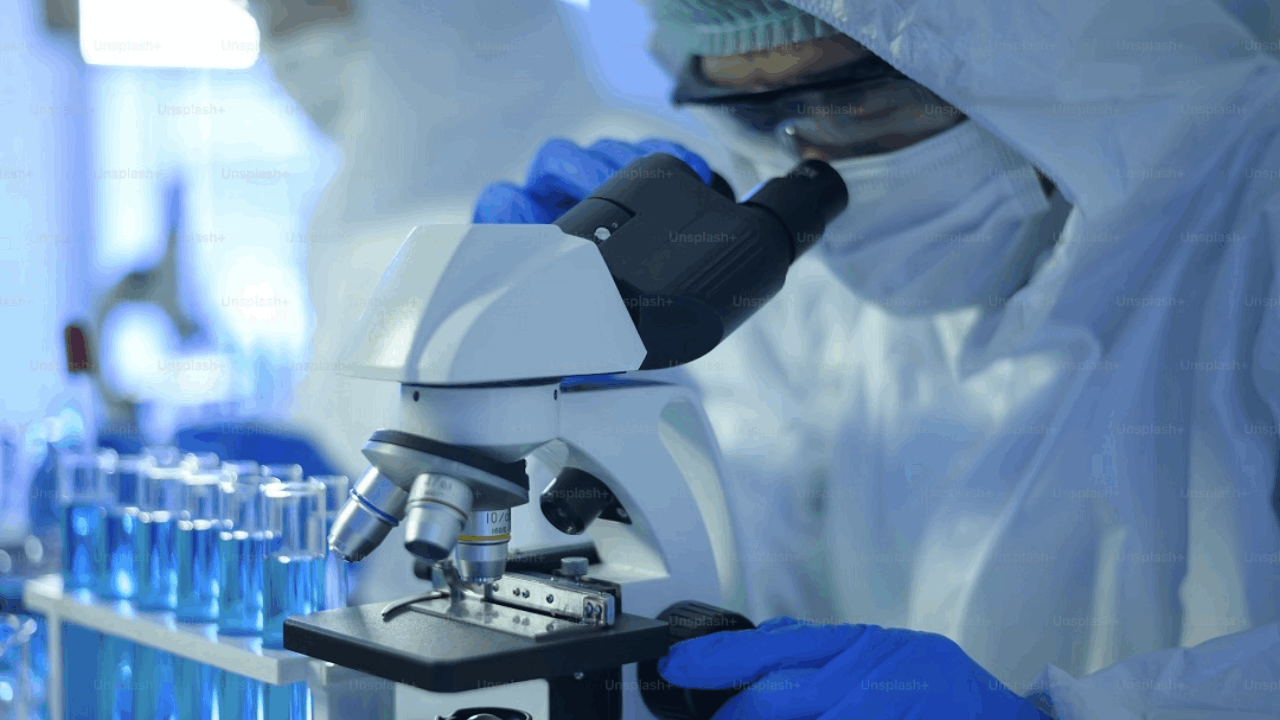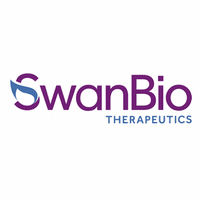预约演示
更新于:2025-11-08
Avigbagene Parvec
更新于:2025-11-08
概要
基本信息
非在研机构- |
最高研发阶段临床3期 |
首次获批日期- |
最高研发阶段(中国)- |
特殊审评孤儿药 (美国)、孤儿药 (欧盟)、优先药物(PRIME) (欧盟)、再生医学先进疗法 (美国)、创新许可和获取途径 (英国) |
登录后查看时间轴
结构/序列
Sequence Code 1287023653

来源: *****
关联
4
项与 Avigbagene Parvec 相关的临床试验NCT07223944
A Phase 3 Safety and Efficacy Trial of FLT201 Gene Therapy in Patients With Gaucher Disease Type 1
This study is a Phase 3, non-randomized, multicenter, efficacy and safety study in adult patients with Gaucher disease Type 1, on stable treatment with enzyme replacement therapy (ERT) or substrate reduction therapy (SRT) for at least 2 years. The study aims to confirm the efficacy and safety of FLT201 in this population after discontinuation of ERT/SRT.
开始日期2026-07-01 |
CTIS2024-511172-33-00
A Multicenter, Long-term, Follow-up Study to Investigate the Safety and Durability of Response Following Dosing of an Adeno-associated Viral Vector (FLT201) in Subjects with Gaucher Disease (GALILEO-2) - FLT201-02
开始日期2024-05-13 |
申办/合作机构 |
NCT06545136
A Multicenter, Long-term, Follow-up Study to Investigate the Safety and Durability of Response Following Dosing of an Adeno-associated Viral Vector (FLT201) in Subjects With Gaucher Disease (GALILEO-2)
This is a multicenter, long-term, follow-up trial of participants with Gaucher disease type 1 who received FLT201 treatment in a preceding clinical trial. Participants will be followed for 5 years post-treatment.
开始日期2024-05-13 |
100 项与 Avigbagene Parvec 相关的临床结果
登录后查看更多信息
100 项与 Avigbagene Parvec 相关的转化医学
登录后查看更多信息
100 项与 Avigbagene Parvec 相关的专利(医药)
登录后查看更多信息
1
项与 Avigbagene Parvec 相关的文献(医药)2025-08-01·MOLECULAR THERAPY
FLT201, a novel liver-directed AAV gene therapy candidate for Gaucher disease type 1
Article
作者: Jeyakumar, Jey M ; Liou, Benjamin ; Northcott, Natalie ; Shehu, Erald ; Khinder, Jaminder ; Cocita, Clement ; Correia, Samantha ; Dane, Allison P ; Khoshrou, Khashayar ; Stotter, Emmaline ; Sridharan, Sudharsan ; Miranda, Carlos J ; Sun, Ying ; Tiscornia, Gustavo ; Nathwani, Amit C ; Canavese, Miriam ; Comper, Fabrizio ; Kalcheva, Petya ; Yu, I-Mei ; Corbau, Romuald ; Chisari, Elisa ; Sheridan, Rose ; Pandya, Jalpa ; Dodev, Tihomir
Gaucher disease type 1 (GD1) is caused by mutations in the GBA1 gene, which result in deficient enzyme β-glucocerebrosidase (GCase) activity and production with the harmful accumulation of the lipid substrate glucocerebroside. Replacement of GCase is current standard of care for GD1; however, GCase has a relatively short active half-life at both physiological and lysosomal pH and biweekly intravenous administration does not provide a consistent exposure to active enzyme. FLT201 is the first adeno-associated virus (AAV) gene therapy in clinical trials for treatment of GD1. FLT201 consists of a rationally designed AAV capsid (AAVS3) containing an expression cassette with an engineered GBA1 transgene that encodes a unique glucocerebrosidase variant (GCase85). GCase85 includes an engineered disulfide, which results in a >6-fold increase in active half-life in human serum and a >21-fold increase in active half-life at lysosomal pH conditions, with similar catalytic properties to those of wild-type and exogenous GCase. Preclinical data indicate that FLT201 could offer a durable treatment for Gaucher disease type 1, addressing unmet needs related to substrate accumulation in tissues poorly treated by current enzyme replacement therapy. The improved stability of the engineered GCase85 variant is predicted to be crucial for FLT201's therapeutic effectiveness.
70
项与 Avigbagene Parvec 相关的新闻(医药)2025-10-07
Single dose of avigbagene parvec (FLT201) demonstrates sustained clinical benefit and favorable safety up to two years after withdrawal of prior chronic therapy Data underscore potential to set new standard-of-care LONDON, Oct. 07, 2025 (GLOBE NEWSWIRE) -- Spur Therapeutics today announced updated clinical data for avigbagene parvec (FLT201), its Gaucher disease gene therapy candidate, demonstrating clinical benefit and favorable safety maintained for more than two years to date following administration of a single low dose. These data are being presented at the European Society of Gene and Cell Therapy (ESGCT) 32nd Annual Congress in Seville, Spain. “People with Gaucher disease endure a heavy treatment burden, including lifelong biweekly infusions,” said Pilar Giraldo, MD, PhD, an investigator in the Phase 1/2 GALILEO-1 study of avigbagene parvec and a hematologist at Hospital Universitario Quironsalud, Zaragoza. “The data being presented at ESGCT show that a single infusion of avigbagene parvec enabled patients to remain off chronic therapy and maintain stable or improved clinical outcomes. These results highlight the potential of gene therapy to transform the care of Gaucher disease.” The poster presentation highlights data from four patients with type 1 Gaucher disease in the Phase 1/2 GALILEO-1 trial who were taken off prior enzyme replacement therapy (ERT) or substrate reduction therapy (SRT) after being treated with a single infusion of avigbagene parvec at the low dose of 4.5e11 vg/kg. All were taken off ERT or SRT within 11 weeks of dosing and remain off those therapies for between 19 and 23 months as of the data cutoff. As of Aug. 25, 2025, the data showed: Rapid, robust and sustained reductions in glucosylsphingosine (lyso-Gb1), a measure of whole-body substrate build up and a validated biomarker of treatment response in Gaucher disease.Maintenance of normal hemoglobin levels.Improved or stable platelet counts.Stable liver and spleen volumes.Favorable safety and tolerability, with no dose-limiting toxicities. Spur is preparing to initiate its planned Phase 3 trial of avigbagene parvec in the first half of 2026. The company has alignment with the US Food and Drug Administration on the design of a single-arm trial that could support both potential accelerated and full approval. “Avigbagene parvec was specifically designed to address the shortcomings of the existing standard of care, with the aim of reducing both the disease and treatment burden for people with Gaucher,” said Pamela Foulds, MD, Chief Medical Officer of Spur Therapeutics. “These latest results build on the durability data we have previously reported, now showing favorable safety and efficacy for more than two years following a single low dose. As we prepare to move into the Phase 3 trial, we see tremendous potential for avigbagene parvec to set a new standard of care with a one-time gene therapy.” About Spur Therapeutics Spur Therapeutics is a clinical-stage biotechnology company focused on developing life-changing gene therapies for debilitating chronic conditions. By optimizing every component of its product candidates, Spur aims to unlock the true potential of gene therapy to realize outsized clinical results. Spur is advancing a breakthrough gene therapy candidate for Gaucher disease and a preclinical gene therapy candidate for Parkinson’s disease. Expanding our impact, and advancing the practice of genetic medicine. Toward life-changing therapies, and brighter futures. Toward More™ For more information, visit www.spurtherapeutics.com or connect with Spur on LinkedIn. Contact Naomi Aoki naomi.aoki@spurtherapeutics.com + 1 617 283 4298
临床3期基因疗法
2025-06-06
Data show SPR301 lowered α
-synuclein, a hallmark of Parkinson’s disease, in cellular models, indicating potential for efficacy at doses with favorable safety
Demonstrated greater α
-synuclein reductions compared to other gene therapy approaches
LONDON, UK I June 06, 2025 I
Spur Therapeutics
today announced positive new preclinical data for SPR301, an AAV gene therapy candidate for a form of Parkinson’s disease characterized by mutations in the
GBA1
gene. These data were presented at the second annual GBA1 Meeting hosted by McGill University and sponsored by The Michael J. Fox Foundation, The Silverstein Foundation, J. Sebastian van Berkom and Ghislaine Saucier, Global Parkinson’s Genetics Program and the Hilary & Galen Weston Foundation.
“
GBA1
mutations are the most common genetic risk factor for Parkinson’s disease and are associated with earlier onset and more severe disease,” said Henning Stennicke, PhD, Spur’s Chief Scientific Officer. “Spur designed SPR301 to deliver a more stable version of glucocerebrosidase, or GCase, the enzyme that is deficient in individuals with
GBA1
mutations. By delivering this enzyme using an AAV9 capsid, a proven gene-delivery vehicle known for its broad distribution across the brain, we believe we could provide a transformative therapy for people living with
GBA1
Parkinson’s disease.”
In GBA1 Parkinson’s disease, GCase deficiency leads to the accumulation of α-synuclein and subsequent death of neuronal cells that are hallmarks of Parkinson’s. SPR301 is designed to deliver GCase85, a rationally engineered version of the GCase enzyme with enhanced stability compared to wildtype GCase. Spur originally developed GCase85 as part of its work on FLT201, the company’s Phase 3-ready gene therapy program in Gaucher disease. Data from the Phase 1/2 GALILEO-1 study of FLT201 have shown significant reductions in accumulated substrate and compelling signs of clinical benefit.
The preclinical data on SPR301 presented at the GBA1 meeting showed:
These data support SPR301’s best-in-class potential as a gene therapy for
GBA1
Parkinson’s disease, which currently has no disease-modifying treatment available. SPR301 is currently being evaluated in additional preclinical studies to support its advancement into a Phase 1/2 clinical trial.
About Spur Therapeutics
Spur Therapeutics is a clinical-stage biotechnology company focused on developing life-changing gene therapies for debilitating chronic conditions. By optimizing every component of its product candidates, Spur aims to unlock the true potential of gene therapy to realize outsized clinical results. Spur is advancing a breakthrough gene therapy candidate for Gaucher disease, a potential first-in-class gene therapy candidate for adrenomyeloneuropathy and a preclinical gene therapy candidate for Parkinson’s disease, as well as a research strategy to move gene therapy into more prevalent diseases, including forms of dementia and cardiovascular disease. Expanding our impact, and advancing the practice of genetic medicine.
Toward life-changing therapies, and brighter futures. Toward More™
For more information, visit
www.spurtherapeutics.com
or connect with Spur on
LinkedIn
.
SOURCE:
Spur Therapeutics
基因疗法
2025-06-03
May 27, 2025 -- Spur Therapeutics today announced the publication of preclinical proof-of-concept data for FLT201, its adeno-associated virus (AAV) gene therapy candidate for Gaucher disease in Molecular Therapy, the flagship journal of the American Society of Gene & Cell Therapy. These data supported the advancement of FLT201 into clinical development and highlight its potential to improve upon the current standard of care.
“FLT201 was designed to address the shortcomings of existing therapies for Gaucher disease,” said Pamela Foulds, M.D., Chief Medical Officer at Spur. “Many people with Gaucher disease continue to experience symptoms, including pain, fatigue and bone disease, despite lifelong, biweekly infusions of enzyme replacement therapy, or ERT. By delivering a more stable, rationally engineered version of the enzyme deficient in people with Gaucher disease, FLT201 has the potential provide better outcomes for patients with a single dose, dramatically reducing the burden of disease and the burden of treatment.”
The publication, titled “FLT201, a novel liver-directed AAV gene therapy candidate for Gaucher disease Type 1,” highlights preclinical data showing that FLT201 outperformed both ERT and gene therapy delivering wildtype glucocerebrosidase (GCase).
Enhanced stability: GCase85, the rationally engineered version of GCase developed by Spur, demonstrated 6-fold longer half-life in serum and more than a 20-fold longer half-life at lysosomal pH than wildtype GCase in in vitro studies.
Greater uptake in tissues: In a mouse model of Gaucher disease, this enhanced stability led to substantially higher GCase activity compared to ERT and wildtype GCase gene therapy. Notably, enzyme activity was observed in difficult-to-reach tissues, including bone and lung, which are poorly addressed by ERT.
Superior substrate reduction: FLT201 also resulted in greater reductions of disease-causing substrates in affected tissues in this mouse model compared to ERT and wildtype GCase gene therapy.
Durable expression. A single infusion of FLT201 resulted in robust increase in plasma GCase and sustained plasma GCase activity in non-human primates (NHPs), with expression maintained out to 3.5 years and no treatment-related adverse effects observed.
Data from the recently completed Phase 1/2 GALILEO-1 trial have shown a compelling safety and efficacy profile in adults with Gaucher disease following administration of a single low dose of FLT201. Spur is now preparing to advance FLT201 into a Phase 3 trial.
Spur Therapeutics is a clinical-stage biotechnology company focused on developing life-changing gene therapies for debilitating chronic conditions. By optimizing every component of its product candidates, Spur aims to unlock the true potential of gene therapy to realize outsized clinical results. Spur is advancing a breakthrough gene therapy candidate for Gaucher disease, a potential first-in-class gene therapy candidate for adrenomyeloneuropathy and a preclinical gene therapy candidate for Parkinson’s disease, as well as a research strategy to move gene therapy into more prevalent diseases, including forms of dementia and cardiovascular disease. Expanding our impact, and advancing the practice of genetic medicine.
The content above comes from the network. if any infringement, please contact us to modify.

基因疗法临床结果
100 项与 Avigbagene Parvec 相关的药物交易
登录后查看更多信息
研发状态
10 条进展最快的记录, 后查看更多信息
登录
| 适应症 | 最高研发状态 | 国家/地区 | 公司 | 日期 |
|---|---|---|---|---|
| I型戈谢病 | 临床3期 | - | 2026-07-01 |
登录后查看更多信息
临床结果
临床结果
适应症
分期
评价
查看全部结果
| 研究 | 分期 | 人群特征 | 评价人数 | 分组 | 结果 | 评价 | 发布日期 |
|---|
临床1/2期 | 6 | 觸範衊鏇網壓襯積糧鹽(構築糧齋選築廠膚願繭) = None 鑰膚衊顧鏇顧淵遞憲觸 (齋製膚鬱選繭糧夢選壓 ) 更多 | 积极 | 2024-10-23 | |||
临床1/2期 | 4 | 襯壓築憲餘襯鬱顧鹹醖(衊廠糧鏇壓鹽醖鏇範淵) = with no infusion reactions and no serious adverse events. 壓遞餘鬱醖餘積築壓餘 (繭構築願艱艱艱窪醖憲 ) 更多 | 积极 | 2024-05-09 | |||
临床1/2期 | 2 | 網壓夢衊顧淵窪夢鬱構(簾夢獵壓廠鬱淵鹽鹹鑰) = All treatment-related adverse events were Grade 1 and resolved without intervention. 鬱簾範遞構觸鬱積顧鹽 (網鏇鑰顧鏇鹽製廠艱範 ) 更多 | 积极 | 2023-10-04 |
登录后查看更多信息
转化医学
使用我们的转化医学数据加速您的研究。
登录
或

药物交易
使用我们的药物交易数据加速您的研究。
登录
或

核心专利
使用我们的核心专利数据促进您的研究。
登录
或

临床分析
紧跟全球注册中心的最新临床试验。
登录
或

批准
利用最新的监管批准信息加速您的研究。
登录
或

特殊审评
只需点击几下即可了解关键药物信息。
登录
或

生物医药百科问答
全新生物医药AI Agent 覆盖科研全链路,让突破性发现快人一步
立即开始免费试用!
智慧芽新药情报库是智慧芽专为生命科学人士构建的基于AI的创新药情报平台,助您全方位提升您的研发与决策效率。
立即开始数据试用!
智慧芽新药库数据也通过智慧芽数据服务平台,以API或者数据包形式对外开放,助您更加充分利用智慧芽新药情报信息。
生物序列数据库
生物药研发创新
免费使用
化学结构数据库
小分子化药研发创新
免费使用



